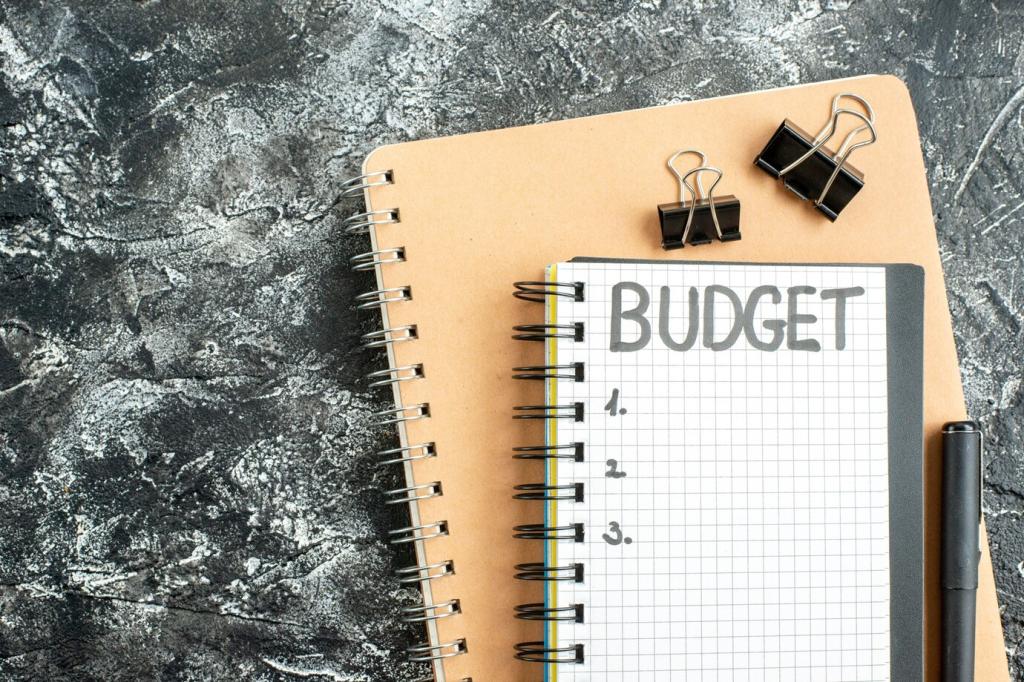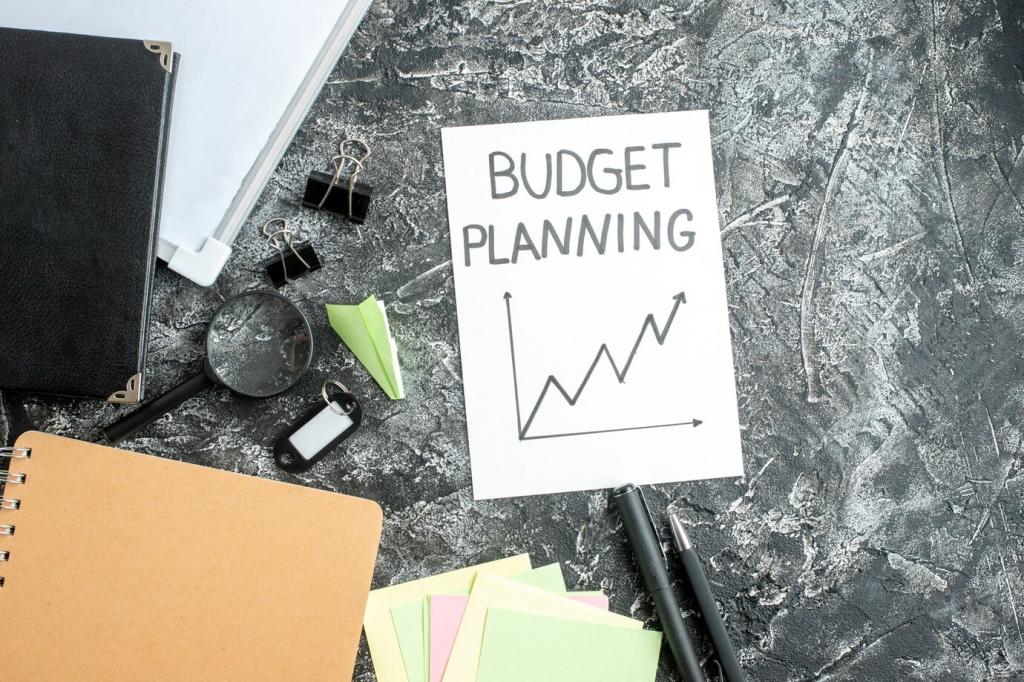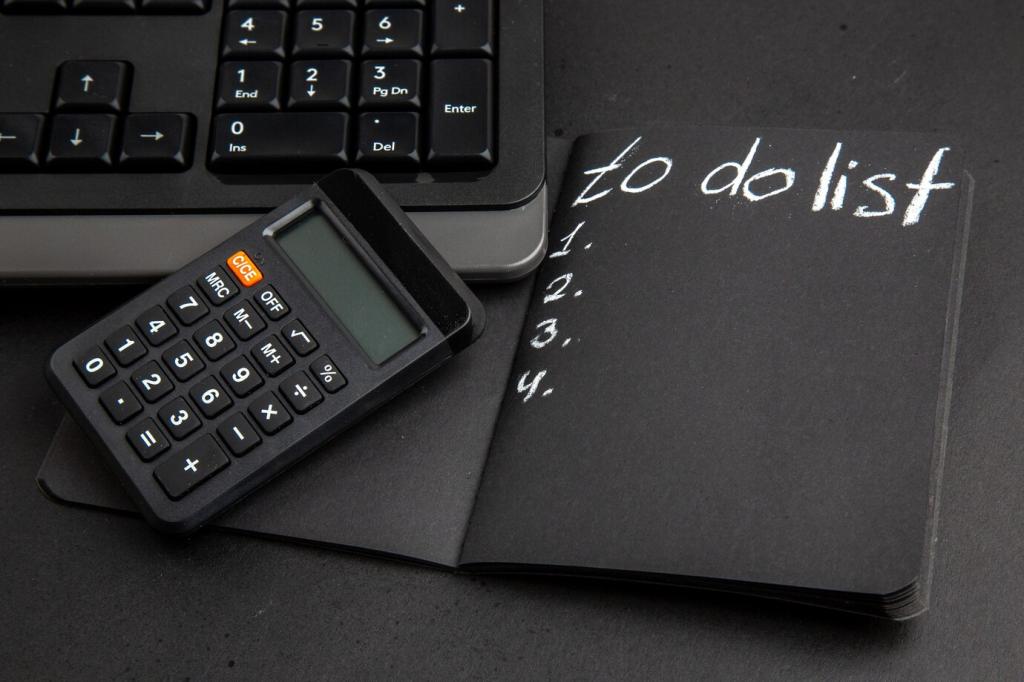Strategies for a Sustainable Money Routine
Chosen theme: Strategies for a Sustainable Money Routine. Let’s build calm, repeatable money habits that fit real life and survive busy weeks. Subscribe for weekly check-in prompts, printable templates, and tiny wins that compound.

Design Your Weekly Money Rhythm
The 15-Minute Monday Check-in
Block fifteen minutes every Monday to review balances, upcoming bills, and top priorities. Keep it lightweight, repeatable, and forgiving, so a missed week doesn’t derail your momentum or confidence.
Friday Reconciliation Ritual
On Fridays, reconcile transactions, tag categories, and celebrate one small win. This closure reduces anxiety over the weekend and reinforces that money care is a routine, not an emergency.
Anecdote: The Coffee Cup Ledger
A reader taped a simple ledger under a kitchen cabinet and updated it while coffee brewed. The ritual stuck because it paired money with an existing, pleasant morning habit.
Automations That Do The Heavy Lifting
Pay Yourself First, Automatically
Schedule a transfer after each payday to savings and investments, even if tiny. People who automate save more consistently because they remove willpower tax and reduce decision fatigue during busy weeks.
Bill Smoothing and Due-Date Alignment
Ask providers to shift due dates around payday and opt for equalized billing where available. Consistent outflows reduce overdraft risk and make your weekly check-ins faster, calmer, and easier to maintain long term.
Micro-transfers That Add Up
Automate small daily or weekly transfers into goal buckets. Ten dollars after workouts, for instance, turns healthy routines into financial momentum, stacking wins and reinforcing both habits without extra mental load.
Values-Based Spending Filters
Write a short sentence for each value—health, family, learning, or creativity. Let these become filters for yes decisions, guiding budgets and preventing comparison-driven purchases that quietly erode satisfaction.

Values-Based Spending Filters
Set pre-commitments like twenty-four-hour holds, cart cool-downs, or spending caps. These rules protect future you and keep your routine resilient when emotions run high or time feels scarce.

Debt Reduction Without Burnout
Snowball builds momentum with early wins; avalanche minimizes interest costs. Pick based on your psychology and constraints, then commit for a season. Reevaluate quarterly, not impulsively, to preserve sustainable progress.
Enable card round-ups or weekly micro-payments directed to your target debt. Small, steady overpayments lower interest and prove to your brain that action is easy, normal, and ongoing.
Track milestones with visible markers—checklists, jars, or progress bars. Celebrate each step and invite a friend to cheer you on. Sustainable routines grow from encouragement, not criticism or fear.
Aim for five hundred to one thousand dollars quickly, then scale toward three to six months. Treat this like insurance for your habits, reducing stress spikes that trigger budget abandonment.
Build an Emergency and Opportunity Fund
Track Progress with Simple, Visual Metrics
Track only a handful of metrics: savings rate, debt-to-income, emergency fund months, and bill payment streak. One glance each week guides action without burying you in unhelpful complexity.
Track Progress with Simple, Visual Metrics
Instead of dollar targets alone, commit to behaviors—four check-ins monthly, three micro-transfers weekly, one unsubscribe each Friday. Behavior goals compound, survive setbacks, and keep your sustainable money routine moving forward.


